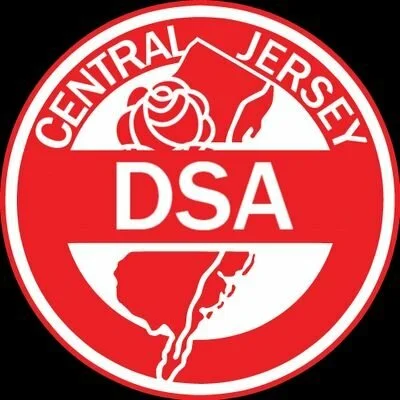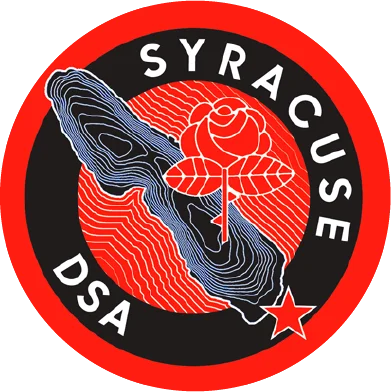

How Do I Utilize An HGO
When you are having trouble navigating relationships and dynamics or whether you have a grievance you wish to file, an HGO can help you. HGOs serve a specialized role with Central NJ DSA. If you feel you need an HGO to help with a topic you are facing please do reach out as soon as possible. You can reach an HGO through this form or by emailing HGO@central.dsanj.org.
A HGO will help you in a compassionate and professional manner navigate tough obstacles and can be used to help further difficult communication amongst a set of people or a group.
Obstacle: You just joined the chapter and you don’t feel like you are communicating well with others or relating.
Action: An HGO will reach out to you and do a basic intake for your needs. After discussing the obstacles you face, a restorative approach plan will be made, and accountability guidelines will be set. Accountability is not always a tricky thing and could mean setting goals.
Follow-ups: Follow ups will be scheduled for the original obstacle brought forward, and ways to measure the change from previous conversations will be used. This may look like counting how many committee meetings you have attended and how many comrades you have spoken to. It could also mean group accountability, where a group of people have to be involved. (It takes a commune is true here!)
Obstacle: I feel like I said something to harsh
Action: An HGO will reach out to you and do a primary intake for your needs. After discussing the obstacles you face, a restorative approach plan will be made, We will explore together the language used and the tones expressed. Depending on what was said, harm may have been done. A plan will be in place to reach out to all parties involved and mediation would be offered. There is no shame in making a mistake if one occurs. If mediation is turned down another approach would be enacted.
Follow-ups: Follow ups will be scheduled for the original obstacle brought forward, and ways to measure the change from previous conversations will be used. This could be a further mediation session or a follow-up on resources provided to ensure this does not affect people like it previously did, and if behavior needs to change, a progress update on feedback will occur.
Contacting and HGO does not mean harm was done and that is often assumed. HGOs serve a valuable role in helping comrades navigate dynamics. Every case a HGO handles is unique and must be cared for in that nature. There is no easy solution to an HGO case and you can rest assured that your approach will be tailored to your needs and the community at large. You have a voice in how your case is handled.
The post How Do I Utilize An HGO appeared first on Central NJ DSA.


Organizations Call on Land Bank to Commit to Affordable Housing
Public land should be used for the public good.
On January 25th, 2024, five local organizations sent a letter to the Columbus Land Bank making this demand and asking it to commit to reserving all its properties suitable for residential development for projects that are 100% and permanently affordable. The Columbus Chapter of the Democratic Socialists of America authored that letter because we believe a just future depends on our public institutions committing to bold action in order to provide housing for all.
The Columbus Land Bank is the government body responsible for acquiring land using public funds and making it available for housing. Along with its partner organization the Franklin County Land Bank, it has the potential to address one of the primary obstacles to the construction of affordable housing: the high cost of land. In recognition of this potential, Mayor Andrew Ginther announced that his administration would allocate 25% of 2022’s $200 million affordable housing bond to the land banks.
This is welcome news, but only if the Columbus Land Bank takes steps to avoid the developer-friendly policies that have plagued much of the rest of the City’s housing strategy. For example, Ginther and City Council recently decided to expand their controversial residential tax abatement program to the entire city. Under this program, developers are eligible to receive a 15-year 100% property tax break in exchange for pricing 20% of their units at below-market rents for 15 years–or by buying their way out of the affordability requirement entirely. Aware that many Columbus residents are opposed to this program, City Council also voted to award $75,000 to a marketing firm to educate the public about the “benefits” of tax abatements.
The Columbus Land Bank has sometimes operated as though its primary purpose is to redistribute cheap public land to developers. According to public sale records, in one instance, the Land Bank has sold public land for as little as $5,700 to a private developer who resold it for $490,000 after building a single-family home on it. This is unacceptable in a county where at least 52,000 households are severely burdened by housing costs and many others struggle to make rent or pay property taxes. At a time when City leaders are bending over backwards to grant additional tax breaks and other financial incentives to developers, reserving public land exclusively for projects that benefit the public is more important than ever.
Publicly-owned land is one of the most valuable assets the City has at its disposal to address the housing crisis. Selling off this land at a pittance to private developers to build expensive single-family homes is not only a poor policy choice but also morally indefensible. We are sick and tired of the City prioritizing the financial interests of wealthy developers over the wellbeing of its residents. That is why we are calling on the Columbus Land Bank to live up to its institutional purpose and use public lands in a way that actually serves the public.
Letter sent to the Columbus Land Bank on January 25, 2024
To the Columbus Land Bank,
The signatories to this letter are organizations committed to the principle that every member of our community deserves to live in truly and permanently affordable housing. As such, we broadly support the Columbus Land Bank’s mission to acquire land and make it available for housing. High land prices are one of the primary barriers to the construction of affordable housing. By purchasing land using public funds, the Land Bank has the ability to bring down housing costs and facilitate the creation of additional affordable housing. Unfortunately, the Land Bank has not always operated in this fashion.
Over the years, the Land Bank has sold many of its properties at a steep discount to for-profit developers. In some cases, these for-profit developers have built single-family homes on the properties, while in others, they have merely rehabbed existing ones. In all cases, they have benefited financially by buying public land on the cheap and selling it at market rates. Developers have resold some former Land Bank properties for over $400,000, many in historically-deprived neighborhoods. These unaffordable single-family developments make it harder to build the dense housing the city needs and instead incentivize landlords to raise rents.
As organizations committed to housing justice, we believe that publicly-owned land should be used exclusively to further the public good. Providing low-cost land to for-profit developers does not advance a public aim. Providing low-cost land for the construction of affordable housing does. That is why we are calling on you to commit to reserving all Land Bank properties suitable for residential development for projects that are permanently and 100% affordable.
You recently announced your intention to reserve most of your inventory for affordable housing projects going forward. This is welcome news, but it does not go far enough. The Land Bank has a vital role to play in creating and preserving affordable housing in Columbus. The Land Bank should join us, and all concerned Columbus residents, to help truly address the housing crisis.
Columbus Democratic Socialists of America
Central Ohio Food Not Bombs
First Collective
Heer to Serve
People’s Justice Project

Remembering the Young Lords: The Legacy of Pablo Yoruba Guzman
This episode of Revolutions Per Minute explores the life and legacy of Pablo Yoruba Guzman, who co-founded the New York chapter of the Young Lords, and later became a prominent television reporter on local news channels in the city. We are joined by Mickey Melendez, a fellow Young Lord, to discuss the group's occupations of the First People’s Church in Harlem and Lincoln Hospital in the South Bronx. We will also hear from New York City Council Member Charles Baron, the organizer Denise Oliver-Velez and CUNY scholar Johanna Fernandez on the legacy of the group.


Retrospective on my time on Steering Committee: 2022–2024
—Tristan Bavol-Marques: former co-chair, treasurer
Written debriefs are useful in organizing both as a medium to organize one's thoughts in the present as well as something that can be revisited in the future to see how an organization has grown. I hope to set down here what I believe to have been the successes and limitations of my time on Steering Committee and provide whatever useful insight I can to the chapter.
Successes
Building a Unified Chapter
My foremost goal when I ran for co-chair two years ago was to centralize NC Triangle DSA into a coherent chapter that coordinates its efforts as one body. Some newer members may not know this, but until relatively recently, we did very little as a chapter—instead, we acted as three very loosely coordinated branches (Chapelboro, Durham, Raleigh), had four separate Discord servers, four steering committees, and smaller working groups separately housed in each branch that didn't really coordinate between branches even if they were doing the same kind of work. It was this baroque and unwieldy structure that I sought to transform into a coherent political body that could channel our energy in a unified direction. This reform was slow and delicate work because of inertia as well as concerns about branches retaining autonomy, but I was able to build chapter-wide buy-in first by building/supporting building chapter-wide structures such as our Comms Committee and the first working groups that decided to become chapter-level groups, for example, when the Chapelboro Electoral Working Group became our Chapter Electoral Working Group. I believe patience and demonstrating the utility of these reforms initially in a piece-meal, voluntary manner was crucial for the success of these centralizing reforms more broadly. I do not believe I would have been successful in achieving these reforms if I tried to do them all at once from the get-go. But although the desire was there to be a more unified chapter, it took someone actively organizing that constituency and pushing along that process for it to actually happen. I am proud that my dream which seemed quasi-utopian at the time of a unified, centralized chapter has been realized, and I think a lot of our recent successes have been made possible by the increased capacity and ability to coordinate organizing that being a coherent and unified chapter has brought us.
Chapter Shirts: A Test Case
The chapter's “White Whale” according to the outgoing leadership when I was starting as co-chair, was chapter shirts. They had been desired and talked about for a long time without any real progress. I made it my goal to secure chapter shirts quickly as a sign of the vigor of the new chapter leadership to members. I spearheaded the effort and sought to get it done within a month of being co-chair, which our Steering Committee succeeded in doing. In hindsight, it turned out not everyone was happy with how the design was chosen, but I believe the result was a net positive for the chapter. Oftentimes, getting things done quickly (or at all) and doing so with the overt consensus of members are priorities that come into conflict with one another; I have tended to favor the former for the less politically-charged aspects of running the chapter. And we got shirts!
NOTE: I know other members are working on getting another batch of shirts made and that that process seems to have stalled out. I am happy to help provide insight on moving that along if desired.
Our Chapter's BDS Resolution
The first major challenge faced by Steering Committee while I was co-chair was brought on by the proposing of the first draft of what would become our chapter's BDS resolution. At the time, I was a relatively new member, and I got my first real taste of some of the internal factionalism and also personal drama that existed within the chapter. This resolution was controversial (in my opinion) because of some of the specific mechanisms it employed, the manner in which it was presented to the chapter, and the overarching context of the Jamaal Bowman affair—as opposed to there being any constituency in the chapter opposed to the real substance of the resolution. I want to thank the group that proposed the resolution for taking the initiative to write what would become such an important document for our chapter. I spent a LOT of time working with the people in favor and opposed to the first draft of the BDS resolution, saw that regardless of ideological tendency differences, there wasn't that much daylight between language that would be amenable to both groups, and was able to get both groups to support a revised draft that passed with nearly unanimous consent and has become a model for Palestinian solidarity to other chapters across the country.
Here, the major lessons for me were that working together across ideological tendencies is not only possible, but a necessary precondition for us successfully organizing the Left and not just splitting off into ineffective splinter groups. I believe it is imperative that DSA unite the left and the working class into a party that can articulate, organize, and fight for its demands. This requires being able to compromise with our comrades, and I believe this was a successful example of debate and compromise leading to a very effective document. Another lesson was the importance of structural clarity as an organization. The initial post introducing the resolution declared it would be voted on at the next general meeting even though that wasn't how the resolution process in our bylaws worked. This led to difficulties because it was easy (especially in the charged atmosphere of the time) to conflate the need to follow the bylaws as it relates to resolutions with attempting to squash the resolution. This led to us as a Steering Committee seeking to increase knowledge of how resolutions and the bylaws work, which I hope has been helpful. Nonetheless, as an avid supporter of Palestinian solidarity, especially in this time of genocide by the zionist entity in Gaza, I am supremely proud that our chapter was able to pass a robust BDS resolution with near unanimous support.
Growth of the Internacional and Electoral Working Groups
Since I've been on Steering Committee, the lightning rod of the chapter has certainly been our electoral work, which makes sense in light of some particularly poor endorsements/candidate relationships at both the national level and by other DSA chapters. By the time I got involved in the leadership of our Electoral Working Group, the group had experienced three major failures (failure to follow up meaningfully on the Danny Nowell win due to Electoral WG leadership at the time not having the capacity to run the group effectively; failure to gain chapter consensus with a voter guide put out by the Electoral WG—and self-crit approved by Steering Committee; and unmitigated failure in our Joshua Bradley endorsement) and was floundering.
I and my co-chair Gabe F were able to rebuild the working group into the powerhouse it is today through direct asks and actively onboarding the new members we did gain. We would make sure to reach out to people who expressed interest in the working group via dm, and we would take time at the end of our meetings to talk with first-time working group attendees to explain what we were working on and answer any questions they might have. That latter point is huge since there is such a high barrier to entry in terms of terminology, campaigns, strategy, and structure that it is a miracle anybody stays with a working group barring some kind of onboarding. These two tools in our organizing bucket—direct asks and onboarding—were how we were able to defeat some of the strongest political machines in Carrboro/Chapel Hill and Durham. Another key aspect of our success was taking the time to put together effective campaigns, which I will elaborate on in the relevant section under insights.
The Internacional Working Group is another working group I am proud to have helped grow. Originally two separate groups: International Solidarity Working Group and Spanish-Language Infrastructure and Outreach Committee, these two groups both struggled with capacity issues and were moribund. Combining the two into one group has spurred new life and vigor into the newly unified group. Now the group has grown past this, but the initial difference between getting 3 people in a meeting versus getting 6 feels huge and is a big boost to morale. Nobody wants to stick around in a group that feels moribund, and this consolidation played a big part in improving the vitality of that work.
Speaking of that work, some of the most fun I've had in DSA is connecting International Committee (the National DSA body) work to our chapter, such as with my trip to Venezuela, the Venezuelan Feminist Tour's stop here (they still say our stop was their favorite and best organized—huge point of pride for the chapter in my opinion!), the Venezuela-DSA event Housing: An International Struggle our chapter organized, the Demystifying Korea event, and our stop on the Mexico Solidarity Project tour. A lot of this work has been made possible because I am also on the International Committee and have been able to connect the right people, so it'll be important for other members from our chapter to join the International Committee (which you can do here!) as I take some time off to parent. And I am very proud of our strident support for Palestine and Palestinians during this ongoing genocide in Gaza.
Getting our Dues Share
Dues Share is a percentage of dues our chapter’s members pay to National DSA that are supposed to be given to our chapter. However, our chapter had not received our dues share until April 2023 because it had not been successfully set up yet. I made it my goal to set up our dues share no matter how hard it would be. It actually turned out to be pretty easy to get set up; it really just required emailing people in National DSA and confirming our bank account. It may be that people at the national-level were less easy to work with in the past, but in all honesty, this should have been done years ago and we have missed out on a lot of money because it wasn't. Regardless, I got this done within about a month of taking office as treasurer, and as a result, we have about doubled our income. This is my chief accomplishment as treasurer, but I hope people have also found me a prompt and efficient treasurer to work with on other things.
Limitations
Growth of other Working Groups
Unfortunately, I have not been able to be involved with every working group to the same degree as I have for Internacional and Electoral. I've tried to share some of the strategies that have worked in those groups at chapter trainings, but there's a difference between me saying what has been effective in other groups versus me actively spending the capacity to put those practices in place within a working group. Direct asks and working group onboarding, plus doing meeting announcements several days ahead of time, plus choosing effective campaigns are my recommendations to other groups. Another possibility to consider is consolidation if there is a group similar enough, which played a huge role in Internacional WG becoming a robust and healthy group.
Building the Spanish-Language Capacity of our Chapter
This dovetails a bit with the previous discussion about consolidating International Solidarity Working Group and Spanish-Language Infrastructure and Outreach Committee (SLIO). I started SLIO with lofty goals of increasing our bilingual capacity, and we did not achieve those goals. We do have greater bilingual capacity now than our mostly just relying on Sebastian FG in the past, but the initial goals set out in that committee were not achieved. I attribute this to my own lack of capacity for the project and the difficulty in mobilizing an already small number of competent members to achieve a pretty big goal. This work is not dead, but it is a smaller part of the larger goal of Internacional Working Group, and I hope as we grow and have more Spanish speakers, we can revisit some of these goals again.
Delegating
A huge deficiency of mine that I have sought to improve upon is ability to delegate. I think I have improved at delegating, but I still find it scary and historically, not delegating work has led to me getting over capacity. The difficulty with me and delegating likely stems from the fear that the person being delegated to won't end up doing the thing in question, which is sometimes the outcome. But, I think I have learned the key is to delegate but check up ahead of time on the progress of the task in question. That and feeling greater and greater trust for my comrades has helped me with this deficiency, but I’m still not great at it.
Mission: Red Triangle
Credit goes to Robert W for the name of this project. I initiated what would be named Mission: Red Triangle because at the time, there was a sense of aimlessness in the chapter, and I sought to bring us all together as a chapter to chart a path forward. I believe the reflection period of Mission: Red Triangle was incredibly useful since we hadn’t really taken time to look at our previous campaigns and what about them was successful and what limitations they had. In that spirit, I am writing this document, and I believe a greater sense of the need for debrief and retrospection has been cultivated in the chapter from Mission: Red Triangle. That being said, I think more could and can still be done to support the priority campaign we decided upon as the culmination of that project, and I believe the priority campaign could use more support from the chapter as a whole. This lack of support is something I could have done more about and for that and some of the other organizational hurdles the Mission: Red Triangle process faced, I definitely take some part of the blame.
Insights
How to win campaigns
Having won a few campaigns now, I believe I can make some recommendations on how to organize winning campaigns. The first step is designing the campaign. I believe a good campaign takes a local issue, ties it to our socialist analysis, and has a clear win state. For example, with the Carrboro Greenway Campaign, the local issue was that a small group of rich homeowners was blocking a key piece of green infrastructure everyone else in town wanted. This ties to our socialist analysis because we were able to highlight the inherent class conflict at play and could radicalize people with this local instance of our overall socialist ideology as well as our ecosocialism. The campaign had a clear win state because we specifically were seeking to pressure Carrboro Town Council to vote to approve the greenway over the objections of the rich homeowners, which they did. Having a clear win state is important because it provides a specific goal for people to organize towards and lets you know whether your campaign was successful. Without a clear win state, people don’t feel like they are making progress and get burnt out.
Other recommendations would be to organize campaigns that build ties with other groups and communities in the area, which stems from the local issue recommendation. We were able to do this with both the Carrboro Greenway Campaign—building a good relationship with TriangleBlogBlog in the process as well as demonstrating our political might to the other members of council—and we were able to begin a relationship with the Durham Committee on the Affairs of Black People with the Nate Baker campaign, which will hopefully result in us building inroads with Durham’s Black community, assuming we are effective in maintaining that relationship in the future.
Demonstrating momentum is another important aspect of effective campaigns. You can demonstrate momentum by publicizing metrics throughout the campaign, like the Carrboro Greenway Campaign did with our petition signature count, and through posting pictures of the turnouts of events. Nothing scared our opponents during the Nate Baker Campaign more than the picture of 25 DSA members volunteering to knock doors. I heard about the photo from other candidates and their staff constantly. Because campaigns take time and a lot of work, demonstrating momentum is key to keeping people engaged through the lifespan of the campaign.
Last but most important is using direct asks. Nothing I’ve ever done while organizing is half as useful as just DMing people and asking them to come out to a meeting or event. The dm is important versus making a general ask on discord because of the bystander effect. If you dm someone, they generally feel more like they need to at least come up with an excuse why the can’t help. Anyone who comes to a meeting or event that you didn’t reach out to is a blessing from God and you ought to treat them as such—beyond that, you need to make direct asks!
Talk to strangers
From my position on Steering Committee and being able to watch our numbers climb, one of the most useful ways of getting new people involved in our chapter—and bringing in fresh faces is critical to the ongoing success of an all volunteer org like ours—is by talking to strangers. The more we table, the more we canvass, and the more we do protest support, the more we grow. As we continue planning new actions and campaigns, I highly, highly, highly recommend we ensure whatever we are doing has an external face to it where we are actively talking to new people outside our existing social circles. This will be key to our continued growth.
Organizing in a multi-tendency chapter
Organizing across tendency can be a challenge sometimes. In my experience, the more grounded in local conditions the work you are doing, the easier it is to work across tendency because usually the differences don’t come up. Where differences do come up, I believe focusing on how to achieve shared goals and framing discussion around that is more productive than hashing out more theoretical ideological differences, which usually is not that productive a line of discussion.
Structure matters
Organizing in a democratic organization like our own requires balancing the principles of democracy with the necessities of action. How we navigate this balance is determined by our structure, and as such, structure matters. I personally favor chapter membership democratically empowering specific members or working groups or committees with a mandate and then giving them the space and trust to do their work. As seen in the retrospectives carried out during Mission: Red Triangle and through my own and I am sure many of y’all’s experience, capacity is the lifeblood of the chapter. Maintaining redundant or obsolete structures costs precious capacity and renders us less well equipped to fight capitalism and the forces of reaction. As such, I have spent a lot of time amending the bylaws and writing resolutions to improve our chapter structurally so as to hopefully improve both our ability to be both democratic and effective while also more efficiently using the capacity we have.
Ceiling is the Roof
Forgive me—it is basketball season. I can very earnestly say that I have never been more hopeful about the future of this chapter and its ability to meaningfully transform the Triangle. I am thrilled at the list of nominees for next Steering Committee and am confident that they will continue to build this chapter and organize the Triangle effectively. I intend on remaining involved in the chapter, albeit at whatever capacity parenthood allows, and I am excited to still help where I can and watch the great work my comrades can achieve together. I want to thank the rest of Steering Committee from both terms—Mika M, Peter T, Robert W, David S, Jason B, Daniel M, Travis S, Cara C, Tim H, Zoe L, and Hwa H. I want to especially thank my indefatigable fellow co-chair Iri Wen for her incredibly hard work these past two years. She has been indispensable to the chapter, and I am so glad she is finally getting a break.

Breaking Barriers: Advocating for Abortion Access in NY State with NYCLU and NYAAF
With the battle over abortion rights raging in the United States at local, state, and national levels, we here in New York state cannot become complacent that access to abortion will always be guaranteed here. Economic, social, and logistical barriers prevent many people from accessing the care they need, and without decisive action to change that, working-class New York residents as well as people living in the surrounding area will continue to be at risk. Tonight we're joined live by Chelsea Williams-Diggs of New York Abortion Access Fund and Allie Bohm of New York Civil Liberties Union to discuss the state of abortion access in New York state and their advocacy for the statewide Reproductive Freedom and Equity Fund.
Tell your legislators that you support increasing access to abortion in New York state: https://action.aclu.org/send-message/protect-abortion-access-new-york
Follow and support the New York Abortion Access Fund at nyaaf.org.

“Inbuilt”: Zionism, Gaza, and Genocide

But transfer was inevitable and inbuilt into Zionism – because it sought
Benny Morris, The Birth of the Palestinian Refugee Problem Revisited (Cambridge: Cambridge University Press, 2004), p. 60
to transform a land which was ‘Arab’ into a ‘Jewish’ state and a Jewish
state could not have arisen without a major displacement of Arab population; and because this aim automatically produced resistance among the Arabs which, in turn, persuaded the Yishuv’s leaders that a hostile Arab majority or large minority could not remain in place if a Jewish state was to arise or safely endure.
On a frigid night, December 5, 2023, Joe Biden visited Boston to raise money for his re-election campaign. The president was received by a large group of citizens who protested in unconditional support for Israel and, by extension, its genocidal actions against the Palestinians.
In Washington, on the same day as Biden’s visit, the House of Representatives passed a resolution explicitly equating anti-Zionism with anti-Semitism, and defining many common pro-Palestinian slogans like “from the river to the sea, Palestine will be free,” as anti-Semitic.
This is a blatant attack on freedom of speech, and signifies a dangerous step toward the criminalization of legitimate political dissent.
As a Boston local living near many universities, I have been disappointed to see local student leaders threatened with strong disciplinary sanctions, just as students were threatened during the Vietnam anti-war protests.
_._
“I know firsthand that Israel has created an apartheid reality within its borders and through its occupation. The parallels with my beloved South Africa are truly painful,” (Archbishop Desmond Tutu, 2014).
Indeed, the current situation in Palestine is reminiscent of South African apartheid, though in many ways, incomparably worse. Nevertheless, despite their differences, the Zionist movement bears an important resemblance to the Afrikaner movement: it is a social system rooted in colonial, racist, and totalitarian practice.
In the West Bank, while broad democratic freedoms are extended to Israeli Jews, Arabs Israelis face, on one level, overwhelming political, legal, and economic discrimination in apartheid-like form and, on another, the daily humiliation and incursions of a brutal and prolonged military occupation. In Gaza, the situation has reached the level of genocidal proportions. As of writing, South Africa is before the International Court of Justice, engaged in a legal proceeding against Israel accusing it of “subject[ing] the Palestinians in Gaza to genocidal acts.”
This is the true face of Zionism: repopulating stolen land, expelling its indigenous inhabitants through humiliation, indiscriminate force, and destroying all access to the basic necessities of life. As much was suggested by the UN Secretary General , who stated that this ‘wave of violence,’ as it is cynically referred to in the press, “does not come out of nowhere,” but “is born of a long-standing conflict, with 56 years of occupation and no political end in sight.”
In Gaza, according to latest UN data, there are at least 22,835 fatalities, with approximately two-thirds of those being women and children. Additionally, there are thousands of Palestinian political prisoners being held without due process, only a handful of hospitals partially functioning, and the threat of famine looming large as the result of draconian Israeli restrictions.
These crimes are well-documented by leading figures and institutions in international law and human rights:
Human Rights Watch: “Since 1948, Israel has established a regime of racial domination and oppression over the Palestinian people primarily in the domains of nationality and land. In the immediate aftermath of the Nakba, Israel adopted a series of laws, policies, and practices, which sealed the dispossession of the indigenous Palestinian people, systematically denying the return of Palestinian refugees and other Palestinians who were abroad at the time of the war. At the same time, Israel imposed a system of institutionalized racial discrimination over Palestinians who remained on the land, many of whom had been internally displaced. Such Israeli laws have constituted the legal architecture of Israeli apartheid that continues to be imposed on the Palestinian people today.”
Philippe Lazzarini, the Commissioner-General of the United Nations Relief and Works Agency for Palestine Refugees in the Near East (UNRWA), described the IDF’s relentless bombardments of the Gaza Strip as “shocking” and the unfolding human tragedy as “unbearable.” Lazzarini highlighted the dire situation in Gaza, where approximately one million people were displaced from north to south over three weeks, in stating that “no place is safe in Gaza.”
Such conditions have prompted rights-groups, like Amnesty International, to call for “End[ing] all U.S. support for the Israeli government’s rights violations and crimes against humanity against Palestinians, particularly the illegal campaign of forced displacement through home demolitions, evictions and settlement expansion in occupied East Jerusalem and the Occupied Territories.
In Boston, we received Biden in the manner he deserved: with powerful, spirited, and determined protest. Nor he, nor his administration, promote peace; instead, they relish war, squandering billions of dollars on instruments of death that could be used for humanitarian efforts and real democracy promotion.
Israel is engaging in wanton terrorism and racism: to state this is not to entertain anti-Semitism, nor is it to deny the Jewish faith, ethnicity, culture, or nation. Jews and Israelis are deserving of the same rights and dignity as everyone else. But Israel, as a State, does not represent all Jews, nor does it contain only Jews. Jews are not a problem, but the prevailing ideology of Zionism is; and it is Zionism that we see unfolding in Gaza today.
Just as we cannot overlook the crimes committed in other historical instances of apartheid and genocide, we cannot overlook the crimes committed in Gaza today. As members of Boston DSA, we have the political and moral obligation educate, organize, and mobilize against all forms of oppression: therefore, it is undeniable that such obligations apply to the case of genocide and Israel’s present assault on Gaza.

The Struggle for Public Power: Lessons from Maine DSA
2023 was the hottest year on record and for many people across the country being able to afford their utility bills to cool or heat their homes during the more extreme temperatures caused by climate change is becoming a possibly deadly challenge. Last year, Maine DSA was part of a statewide coalition called Pine Tree Power that attempted to take over the two largest corporate utilities in the state through a ballot measure in November. They didn’t win. But here on Revolutions Per Minute we are just as interested in talking about losses as we are victories. Tonight, we’ll go to Maine and talk with Aarron and Dwight about the struggles of organizing in a rural state and the lessons they learned from their Public Power campaign.
We’ll also check in with Chen from the New York City EcoSocialist Working Group for an update on the state of renewable energy development in New York (spoiler alert: the private market is in shambles) and what comes next for implementing the Build Public Renewables Act.
Follow Maine DSA and our guests at @DSA_Maine, @bioleera, and @dwobbsy.
Follow New York City EcoSocialist Working Group at @NYCDSA_Ecosoc


Defending Public Education

Chapter Statement Jan 9, 2024
In response to an attack article in CNYcentral from a right-wing propaganda group.
Syracuse DSA proudly endorsed several candidates in 2021, recognizing their tireless advocacy for the needs of all children in Syracuse. We stand firm in our support of our endorsees. The ‘report’ by Parents Defending Education - a group akin to Moms for Liberty and known for spreading disinformation and fear-mongering - creates a false equivalence between those working to fund and build up our public education system and those ideologically committed to dismantling it.
These far-right groups whitewash history, erase cultural diversity and identities, and seek the wholesale destruction of the public education system. Syracuse DSA supports policies to strengthen our public education system - including the principles of community care instead of juvenile policing (Care, not Cops). In contrast to the right-wing agenda of indoctrination, we embrace students’ varying cultural backgrounds and reject a learning environment that forces assimilation and ideological conformity.
We reject the unfounded allegations made by right-wing educational groups as well as their support for the school-to-prison pipeline. It is no surprise to us that these groups have no objections to funding genocide in other contexts. Syracuse DSA welcomes those standing for and with public schools and invites them to seek our endorsement next election.


Charlotte for CATS 2024 Campaign Launch
Charlotte Area Transit System (CATS) buses can be miserable to use. Buses are infrequent, arrive late, and skip stops. Bus stops can be hard to get to, sometimes with nowhere to sit or shelter while waiting. Trips that ought to take 30 minutes can take hours depending on the day. Overall, riding the bus is so inconvenient that most Charlotteans don’t even consider taking the bus. Therefore, only those who truly rely on the bus system tend to experience its failures. This fact is often shrugged off by Democrats – after all, most people have cars – and justified by Republicans as a punishment for poverty. As socialists, we see this is a tragedy needing an urgent solution.
Mass public transit is a crucial service for the city. It’s a substantially cheaper, safer, and even more dignified form of transportation than our current car-centered system. Mass transit relieves us of the need to purchase, maintain, and pay debt on a car. Mass transit takes vehicles off the road, resulting in quieter streets and less polluted air. Mass transit recognizes that the ability to get to work, run errands, and explore our city should be shared equally, connecting rather than separating us.
This year the Charlotte Metro DSA is launching the Charlotte for CATS campaign. We demand that CATS become the mass public transit system that Charlotte needs. Since the initial outbreak of COVID-19 in 2020, CATS has fallen into disrepair. Mired in scandals, CATS is under-performing and under pressure to change. Rather than give in to this situation and let the bus system leave behind those who depend on it, we can turn the situation around. CATS can operate for the benefit of all.
Join us today and let the city know: CATS service levels must be improved!
Solidarity Forever,
Charlotte Metro Democratic Socialists of America Steering Committee
